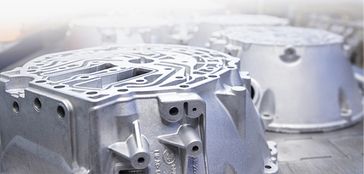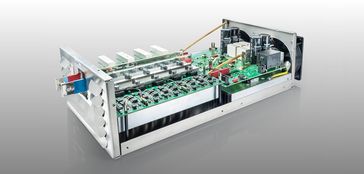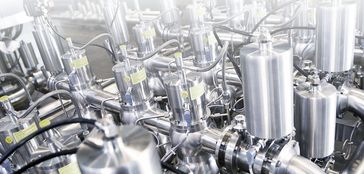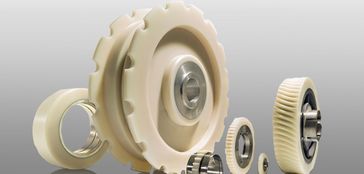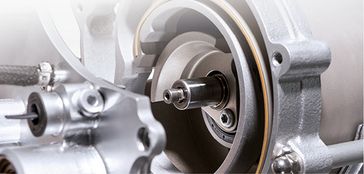In response to an invitation from the Member of the State Parliament Thomas Dörflinger (CDU), Dr. Nicole Hoffmeister-Kraut, Minister for Economic Affairs, Labour and Residential Development, visited the Biberach constituency at the end of April. She stopped off at Handtmann in Biberach. Dr. Hoffmeister-Kraut used the opportunity for a frank discussion about current topics and the challenges faced by local companies in the automotive supply sector in particular.
In the last 10 years, Handtmann has successfully managed to constantly increase its turnover and its workforce. However, this is always accompanied by high levels of investment and continual innovation in order to allow the company to face the challenges and the multiple changes that the future will bring, including electric mobility and its impact on suppliers.
According to Jörg Hochhausen, Managing Director of Handtmann Service GmbH & Co. KG, structural change as a step towards becoming a system supplier is becoming more and more noticeable. The customer wants the complete package, and preferably from a single source. He added that a variety of aspects have to be taken into account with respect to ensuring the future of the company. These include issues such as more demanding qualification requirements and resources management, in connection with the fundamental question of where investment is to be made.
The minister too sees the process of transformation that the Baden-Württemberg automotive industry is undergoing as a major challenge, and mentioned the state’s programme for strategic dialogue in this context. “With the launch of the “Strategiedialog Automobilindustrie”, the state of Baden-Württemberg has paved the way for exploiting innovation potential. With close cooperation between the fields of politics, business, science and civil society, as well as employee associations, consumer organisations and environmental associations, projects, measures and concepts are to be developed to create solutions to problems related to the future of the automotive industry and mobility in Baden-Württemberg.”
“It is extremely important that government supports medium-sized companies, in particular during this transformation process, by ensuring favourable basic parameters. Because this is about nothing less than keeping jobs and maintaining wealth in our region,” added Member of the State Parliament Dörflinger.
Other important issues are infrastructure and the provision of additional land. Hochhausen stated that fast and low-cost site preparation is needed for construction projects. The building permission processes must also become quicker and more simple, he added. Other topics that were addressed in the discussion session were, for example, climate change, diesel vehicle bans and the energy transformation. The minister emphasised that putting every effort into ensuring that decision-making is focussed on sustainability at state level is extremely important to her. In this context, one has to act based on economic, social and ecological considerations. All three aspects have to be given equal weight. To conclude the visit to Handtmann, a tour of the die casting area was undertaken by the group.
Finally, the minister stressed that direct contact with local people and companies is of great importance to her. “Visits and direct, on-site dialogue give politicians important information and stimulus and enable them to use this to develop and shape our state.”

